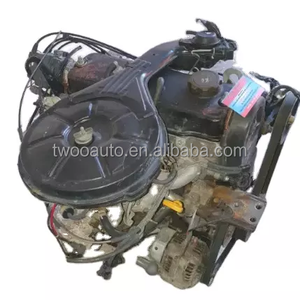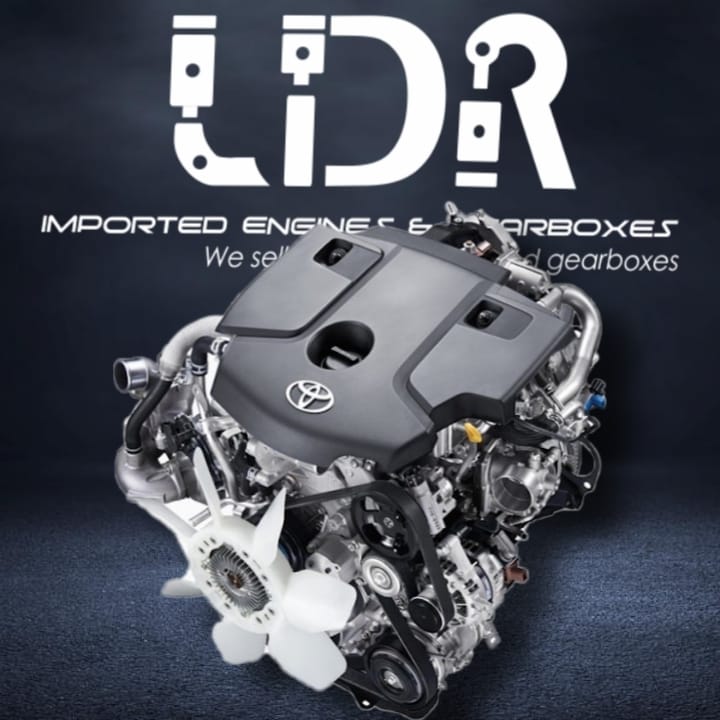Revitalize Your Lorry: Toyota Tazz Engine for Sale Now Available
Revitalize Your Lorry: Toyota Tazz Engine for Sale Now Available
Blog Article
Engine Acquiring Specialist Tips on Picking the Right Engine for Your Certain Needs
Choosing the best engine for your certain demands involves a complicated interaction of aspects that go past simple horsepower figures. By diving right into the intricacies of power versus performance, reviewing gas ratings, and budgeting for lasting expenses, one can really optimize their engine option.
Power Vs. Performance: Discovering the Balance

When selecting an engine, it is important to strike an equilibrium in between power and effectiveness to fulfill your certain demands effectively. Power refers to the engine's capability to produce power for propulsion, determining aspects like acceleration, hauling capability, and overall performance (Toyota Tazz Engine For Sale). On the other hand, performance connects to how well the engine makes use of gas to produce power, influencing variables such as gas economy and environmental kindness
Attaining the right balance between power and efficiency is vital due to the fact that an engine that is as well powerful may consume too much fuel, causing higher operating prices and unnecessary strain on the setting. On the other hand, an engine that prioritizes efficiency over power may lead to slow-moving performance, particularly sought after circumstances like lugging heavy lots or driving uphill.
To make a notified decision, think about factors such as your normal driving conditions, the intended use the lorry, and your individual choices. By assessing your priorities and demands, you can select an engine that strikes the ideal balance in between power and effectiveness, making certain optimal performance while lessening environmental influence and operating expense.
Recognizing Engine Dimension and Kind

Furthermore, engine type plays a critical function in determining the performance qualities of an engine. Usual engine types consist of inline engines, V engines, and rotating engines, each with its one-of-a-kind benefits and downsides. The engine type influences aspects such as the engine's dimension, weight circulation, and power distribution. Recognizing the interplay in between engine dimension and type is important in selecting an engine that lines up with your details demands and top priorities, whether it be power, effectiveness, or an equilibrium of both.
Consider Your Lorry's Requirements
If you are looking for an engine for a durable vehicle that will be utilized for towing, you will require an effective engine with high torque capabilities. On the other hand, if you are picking an engine for a portable auto largely made use of for city travelling, gas efficiency may be a much more critical factor to take into consideration.

Reviewing Gas Efficiency Scores
Analyzing fuel efficiency rankings is a crucial facet of choosing the ideal engine for your lorry, making sure price financial savings and ecological sustainability. Fuel effectiveness rankings, normally measured in miles per gallon (MPG) for gas engines or kilowatt-hours per 100 miles (kWh/100 miles) for electrical engines, suggest exactly how much a lorry can travel on a certain Website quantity of gas or electrical energy. Greater MPG or lower kWh/100 miles worths symbolize much more reliable engines, converting to lowered gas expenses and lower carbon emissions.
Furthermore, contrast various engine choices within the very same lorry class to identify the most affordable selection. Factors such as engine dimension, weight, the rules of aerodynamics, and crossbreed or electric capacities can all influence gas effectiveness.
Budgeting for Long-Term Costs
Purposefully preparing for lasting expenditures is important when choosing an engine, guaranteeing economic sustainability over the automobile's lifespan. While the first acquisition rate of an engine is a significant variable, it is crucial to think about the lasting prices related to upkeep, repair services, and gas usage. Going with an extra fuel-efficient engine might have a greater in advance price but can cause considerable financial savings over time. Regular maintenance, such as oil adjustments, filter replacements, and tune-ups, is vital to maintain the engine running efficiently and successfully, reducing the threat of costly fixings down the line.
Furthermore, researching the schedule and price of substitute components for the selected engine is crucial in spending plan planning. By meticulously budgeting for these long-lasting costs and factoring them right into the decision-making process, individuals can select an engine that not just satisfies their instant demands yet additionally stays cost-effective throughout its life expectancy.
Verdict
To conclude, picking the right engine for your details requirements requires stabilizing power and go to this web-site effectiveness, recognizing engine dimension and type, considering your car's needs, examining gas performance rankings, and budgeting for long-term prices. By very carefully thinking about these aspects, you can make certain that you choose an engine that satisfies your needs and gives optimal efficiency for your vehicle.
To even more improve the selection procedure of an engine that strikes the optimal equilibrium between power and effectiveness, it is necessary to dig into the complexities of understanding engine dimension anonymous and kind. Engine size refers to the overall volume of air and gas that can be pressed via the engine cylinders. Common engine kinds include inline engines, V engines, and rotating engines, each with its distinct benefits and downsides. Comprehending the interplay between engine size and type is vital in choosing an engine that lines up with your particular requirements and top priorities, whether it be power, efficiency, or an equilibrium of both.
Gas performance ratings, typically determined in miles per gallon (MPG) for fuel engines or kilowatt-hours per 100 miles (kWh/100 miles) for electric engines, show exactly how far a vehicle can take a trip on a details amount of fuel or electricity.
Report this page